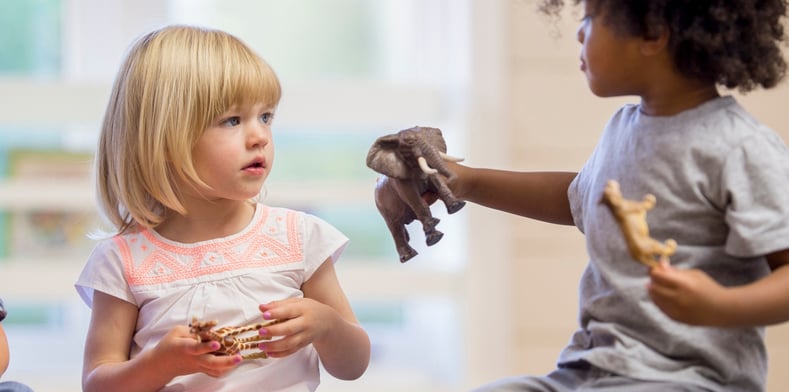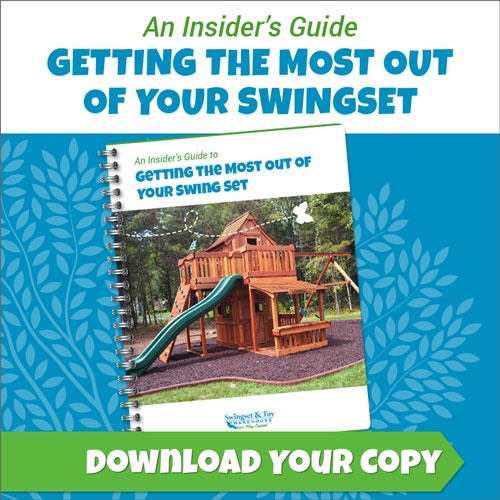For adults, sharing can be wonderful. Letting a friend know about an unsung book that you love. Giving time or money to those in need. Sharing your deepest feelings with the person you love.
For kids, sharing is…well, a bit trickier. It’s a skill they need to cultivate. Child play time only really works if kids can divvy up toys and take turns, so here are a few tips for teaching children to share.
These tips come from the Raising Children Network. It’s a parenting website with international roots and its lessons are universal.

You can encourage sharing by:
-
Show them how other children share.
-
Give them praise and attention when you see them trying to share.
-
Play games with them that involve sharing and taking turns.
-
Spend some time preparing them for play dates. Explain that they’ll need to share some toys. You should have similar conversations before they head off to preschool or daycare.
-
Practice at home if your kid is having trouble sharing. For example: “Let’s share a banana. You can have some, and I can have some.”
-
Show your kids that not sharing has consequences. If two siblings refuse to share a toy, take the toy away for a while. When you think they’re ready, give the toy back so they have another chance to prove they can share.
Keep in mind that your child should still be allowed to keep some toys for themselves. Keep them out of the way when other children come over to play.
Now, let’s look at some ways of teaching children to share at different age levels
Teaching Toddlers To Share
Toddlers may not even grasp what sharing means. In their minds, things just belong to them, so imposing a punishment for not sharing really won’t do much good. You’ll have more luck encouraging them to share by practicing at home.
By the time they get to be 3, many children understand how turn-taking works. But you still might see a tantrum – or at least some impatience – if another child takes a toy they really want.
Pre-schoolers
Most kids get to preschool with a basic notion of sharing, although they might find it hard to put that notion into practice.
You can encourage them to share by continuing the lessons we described above, and by reminding them how they would feel if someone wouldn’t let them have a turn at a game or use a toy that they liked. Talking about other people’s feelings helps them see things from their point of view, which is also an important skill for making friends.
You should also be realistic. Pre-school aged children are still learning to understand other people’s feelings.
School-Age Children
Once kids start grade school, they’ve begun to understand that other people’s feelings are separate from their own. While they still might find it difficult to share a favorite toy, they can at least grasp the idea of sharing.
Children at this age have a strong sense of fairness. If they think a game is unfair, they’ll be less inclined to share. Check the rules of the game – this might be difficult if it’s a game the kids have invented – and try to reassure your child that everyone will get their turn.
Kids at this age are more patient, and ready to do the right thing. They can also form more complex relationships, and are getting practice sharing at school.
Sharing is important to us at Swingset & Toy Warehouse because we make things for your children to enjoy together.
Trampolines are designed for children to take turns. Basketball hoops are more fun when you’re playing a game. And our backyard playsets contain swings, slides and other features meant for groups of kids to enjoy at once.
Contact us today, and we’ll help you find a child play set that your kids will enjoy, and – hopefully – enjoy sharing.





